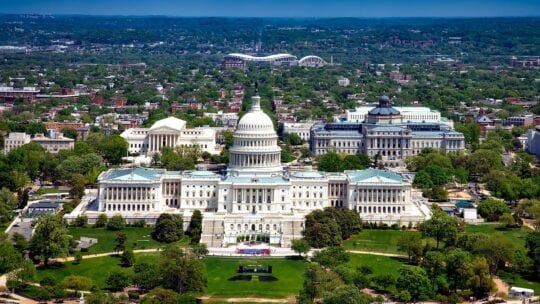
Watching the PR tactics of politicians can provide an education for communicators. Some of the tactics and strategies they employ are not taught in communications schools. Flexibility is one of the most important.
Whatever decisions President Biden made about the evacuation from Afghanistan, he was sure to receive criticism. Removing politics from the equation and looking at things from a purely PR viewpoint, there are many lessons to be learned.
Let's begin with what the president and his administration did wrong communication-wise.
Communication Miscues
The Mistake: During his first presser, the president tried to shift blame to past chief executives. That’s history. He’s in charge now. Deflection rarely is a good, long-term PR strategy. The PR Lesson: Those you represent are not interested in excuses. They want to know how you will fix their problems. Whenever a program is in trouble, the PR pro must always suggest ways to fix it.
The Mistake: Numerous media reports said the president was warned that a chaotic situation would develop during the evacuation. Yet the president denied being told that. The PR Lesson: Trying to 'spin' damaging news is bad PR. Doing so only makes the media distrustful of your future remarks.
The Mistake: The president said several times that any American who wanted to leave Afghanistan will be able to do so. Also, he said Afghans who helped American troops and personnel during the 20-year engagement would be evacuated. The PR Lesson: Communicators should never make declarations about situations over which they have no control. In this case, the State Department admitted it didn’t know the number of Americans in Afghanistan. Moreover, estimates of the number of Afghans who helped Americans varied greatly. A better statement for Biden would have been, 'We are doing everything possible to evacuate Americans and our Afghan allies.'
The Mistake: Biden set an August 31 line in the sand, declaring a deadline without assurance that the mission could be accomplished in that time frame. Several times the president and administration officials had to clarify what the August 31 deadline meant. The PR Lesson: When someone you represents asks when a project can be delivered, always add several days to your estimate. It’s better to surprise people by delivering the project a few days earlier than providing it a few days late.
Communication Positives
Positive Tactic: Unlike CEOs who try to duck from the press during difficult times, Biden was available. He granted an exclusive interview to George Stephanopoulos and held several pressers with White House reporters. The PR Lesson: For national politicians, the choice is clear. If politicians want to convince the American public that a decision was correct, they must face the press.
However, in a business situation, making a CEO overly available to the press must be considered carefully. Will the CEO seem sympathetic or arrogant? Is the CEO willing to tell the truth? Is the CEO media-trained enough to avoid making statements that can be proven false later or create legal problems? Sometimes it's best to let other executives directly involved in a PR crisis be the main spokespersons.
Positive Tactic: Biden admitted that the rapid collapse of the Afghan army surprised him. The PR Lesson: Telling the truth should be the default response in every situation. Telling the truth is necessary to avoid additional negative media coverage.
Positive Tactic: On the day of the horrific ISIS-K attack, the president, knowing he'd face difficult questions, met the press. The PR Lesson: Not hiding from the media during a crisis positions the administration as being relatively open with the press and not fearful of taking criticism on national television. This can only help. In addition, it also gave the president another opportunity to explain his decisions. On the down side, press briefings were cancelled several times, the president refused to meet the press after delivering remarks or arrived late for media briefings.
Other PR Lessons from the Afghanistan Withdrawal
- Keep the flow of information moving. On days that the president did not hold a presser, other administration officials held media briefings. Military commanders also held Q&As, including one by the commanding general from Afghanistan. Regular briefings allowed the administration to tell its stories, lessening the media's filtering and mischaracterization of the narrative.
- The military briefings were especially effective. Media appreciate opportunities to question those who know first hand what’s happening as opposed to having a corporate executive be the sole spokesperson during a crisis.
Arthur Solomon was SVP/senior counselor at Burson-Marsteller and a journalist. Contact him: [email protected]
